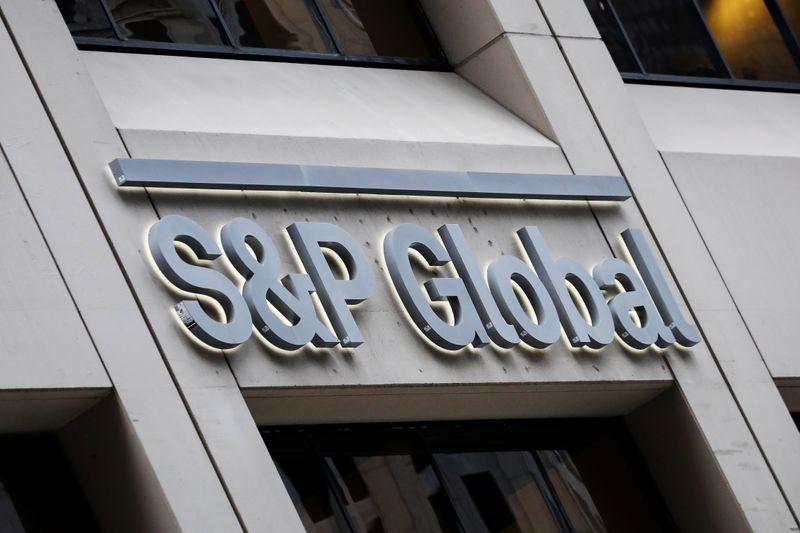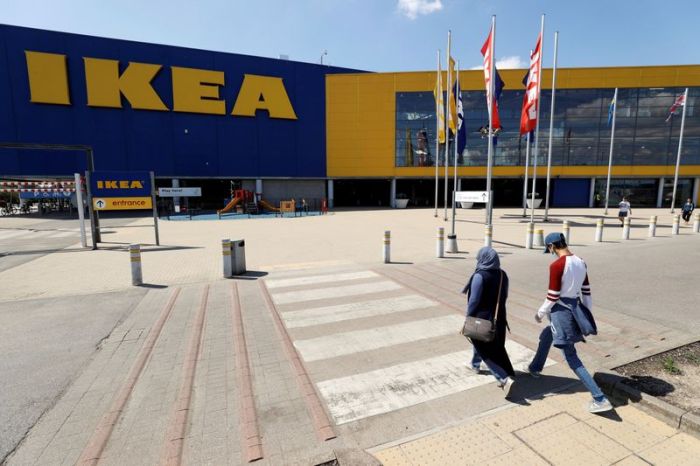LONDON (Reuters) – The COVID-19 shock will double company default rates across the United States and Europe over the next 9 months, ratings agency S&P Global said on Tuesday, although it noted that the record downgrade pace of recent months was now slowing.
S&P predicted U.S. corporate default rates would rise to 12.5% from 6.2% and saw Europe’s rate going to 8.5% from 3.8%.
This year’s crisis has already seen more than 2,000 companies’ or countries’ ratings or ‘outlook’ scores cut and nearly $400 billion worth of debt drop into ‘junk’ territory, but in the months ahead focus will shift to defaults and survival.
Alexandra Dimitrijevic, S&P’s Global Head of Research, said that with the number of firms on downgrade warnings at record levels — 37% of the companies S&P rates and 30% of the banks — and credit quality dropping, default rates are set to jump.
“One third of speculative-grade companies are rated B- or below in Europe, which is up 10 percentage points compared to before the (COVID) crisis. So that is why we expect the default rate to effectively double”.
The firm’s base case is that a coronavirus vaccine will be widely available by the middle of next year.
In a situation where it takes longer and more lockdowns are required, U.S. default rates could be as high as 15%, or 11.5% in Europe. The optimistic scenario is for a 4% U.S. rate and 3% in Europe.
The previous records of 12.5% and 12% in the United States were seen during the Asia crisis and after the global financial crisis just over a decade ago.
(Graphic: U.S. default rates over the years link: https://fingfx.thomsonreuters.com/gfx/mkt/xegpbjxxjpq/Pasted%20image%201601991770422.png)
(Graphic: COVID has caused over 2000 credit rating downgrades link: https://fingfx.thomsonreuters.com/gfx/mkt/dgkvlbykevb/Pasted%20image%201601985434432.png)
A breakdown of the details shows how the coronavirus has divided the global economy. Between 70% to 85% of energy, transport, media and automotive firms have been hit by rating moves whereas the big tech firms have seen barely any impact.
(Graphic: Rating moves by sector link: https://fingfx.thomsonreuters.com/gfx/mkt/yxmpjbddypr/Pasted%20image%201601992986328.png)
It is also set to be a record year for so-called “fallen angels” – companies or countries whose ratings are cut from the coveted ‘investment grade’ band to riskier ‘junk’.
The number of “fallen angels” has already topped 25 this year, with major global names like Ford, Kraft Heinz, Renault, Occidental Petroleum , Delta Air Lines, and Macy’s impacting around $360 billion in debt.
The 119 potential fallen angels still in danger have another $595 billion of bonds, including two countries, Colombia and Romania, meaning the amount is likely to spiral.
“Overall we expect more rating actions to come in the sectors that are more exposed to social distancing measures,” Dimitrijevic said.
2020 set to be a record year for fallen angels: https://fingfx.thomsonreuters.com/gfx/mkt/xegpbjdnapq/Pasted%20image%201602012577091.png
(Reporting by Marc Jones; Editing by Kirsten Donovan and Sonya Hepinstall)
























